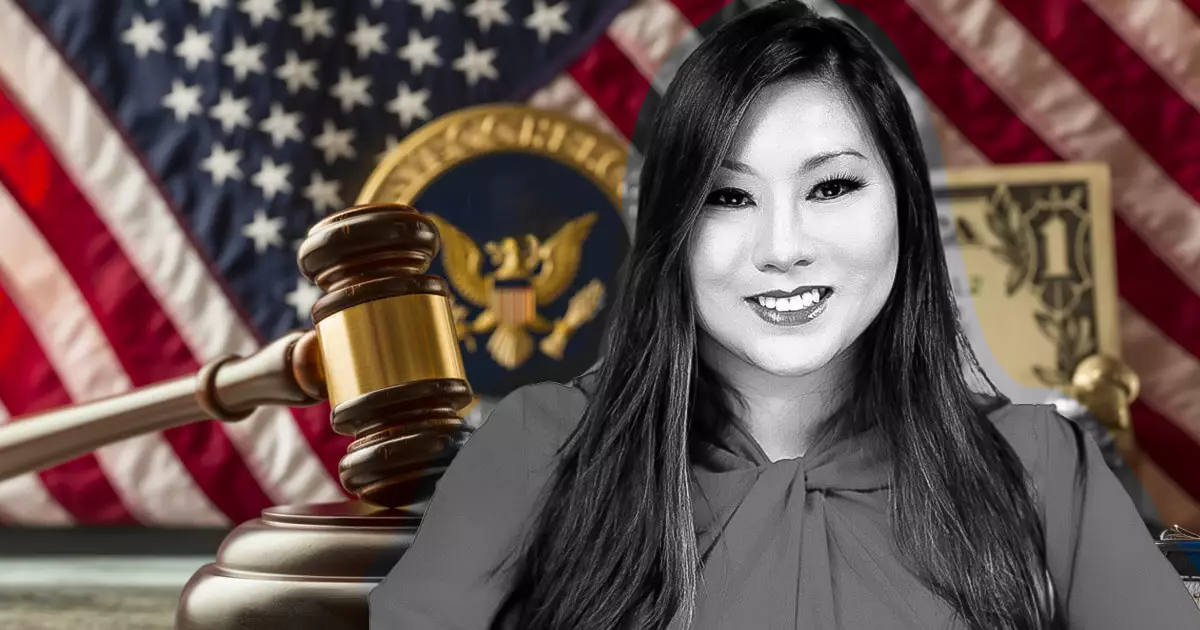On January 20, 2023, news surfaced that Caroline Pham, a junior commissioner at the Commodity Futures Trading Commission (CFTC), has been appointed as the agency’s acting chair. This decision was reported by Bloomberg News, which cited sources familiar with internal discussions. Pham’s confirmation by the CFTC’s five-member commission signals a pivotal moment for the agency as it navigates an increasingly complicated landscape of digital assets and cryptocurrencies.
Caroline Pham’s entrance into the CFTC was facilitated by former President Joe Biden’s administration in 2021. Since her appointment, she has positioned herself as a leading voice advocating for clarity and innovative frameworks within the regulation of crypto markets. Her focus on regulatory sandboxes—a concept aimed at providing a controlled environment for new financial products—demonstrates her commitment to fostering innovation while ensuring compliance with necessary regulations.
These sandboxes allow companies to pilot their products with oversight, which balances innovation with consumer protection. In doing so, Pham aims to create an ecosystem where companies can experiment without the immediate burden of full regulatory compliance, thus leading to a healthier, more competitive marketplace.
In September 2023, during a speech at a Cato Institute event, Pham unveiled her vision for a government-led pilot program designed to nurture compliant digital asset markets. This initiative emphasizes collaboration between regulators and industry players to forge comprehensive guidelines around risk management, transparency, and fraud prevention. By establishing such a framework, Pham believes that the U.S. can position itself better against global competitors making substantial strides in cryptocurrency regulation.
Her perspective highlights a critical observation: the U.S. stands at risk of losing its competitive edge in the world of cryptocurrencies if it does not adapt and create robust regulatory mechanisms. She emphasizes that, without proactive measures, the nation could see itself eclipsed by countries that are proactively curating strategic policies for the crypto space.
As Pham takes on this new role, she faces significant challenges and opportunities. The crypto landscape is in flux, with rapid advancements often outpacing the current regulatory framework. Pham’s initiatives may not only focus on compliance and oversight but also on instituting guidelines that enhance the growth and credibility of digital assets in the U.S.
This dual approach could potentially increase public trust and investment in cryptocurrencies, provided that stakeholders—including entrepreneurs, investors, and consumers—perceive the regulatory environment as fair and conducive to innovation. In this sense, Pham’s leadership at the CFTC is critical in deciding whether America can remain a leader in digital finance or will succumb to the more progressive regulatory environments being developed elsewhere.
As Pham steers the CFTC during this transitional period, her actions will undoubtedly shape the landscape of crypto regulation for years to come, making her tenure one to watch closely.
















Leave a Reply